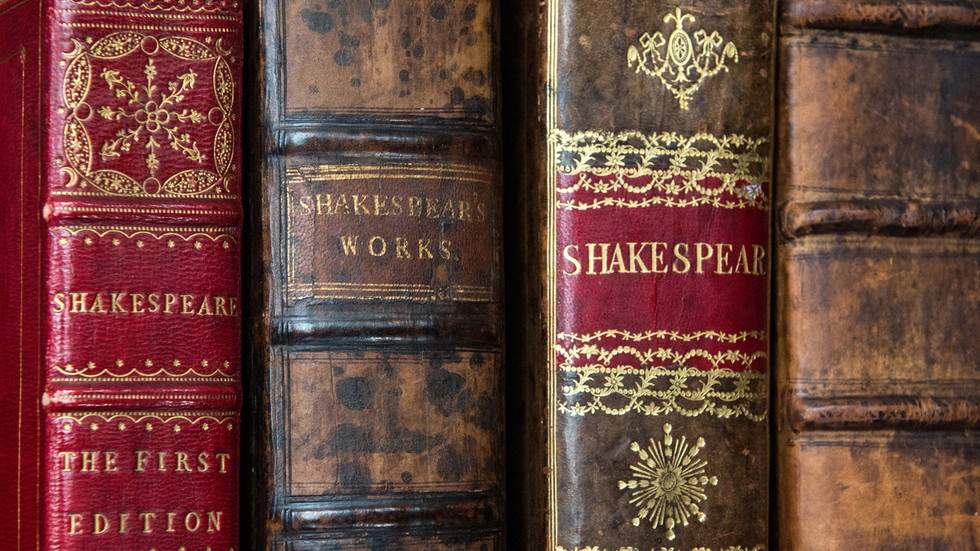“Trans people need and deserve protection.”
“I believe the majority of trans-identified people not only pose zero threat to others but are vulnerable.”
“I respect every trans person’s right to live any way that feels authentic and comfortable to them.”
“I feel nothing but empathy and solidarity with trans women who’ve been abused by men.”
These statements were written by J.K. Rowling, the author of the “Harry Potter” series, a human-rights activist and — according to a noisy fringe of the internet and a number of powerful transgender rights activists and L.G.B.T.Q. lobbying groups — a transphobe.
Even many of Rowling’s devoted fans have made this accusation. In 2020, The Leaky Cauldron, one of the biggest “Harry Potter” fan sites, claimed that Rowling had endorsed “harmful and disproven beliefs about what it means to be a transgender person,” letting members know it would avoid featuring quotes from and photos of the author.
Other critics have advocated that bookstores pull her books from the shelves, and some bookstores have done so. She has also been subjected to verbal abuse, doxxing and threats of sexual and other physical violence, including death threats.
Now, in rare and wide-ranging interviews for the podcast series “The Witch Trials of J.K. Rowling,” which begins next week, Rowling is sharing her experiences. “I have had direct threats of violence, and I have had people coming to my house where my kids live, and I’ve had my address posted online,” she says in one of the interviews.
“I’ve had what the police, anyway, would regard as credible threats.”
This campaign against Rowling is as dangerous as it is absurd. The brutal stabbing of Salman Rushdie last summer is a forceful reminder of what can happen when writers are demonized. And in Rowling’s case, the characterization of her as a transphobe doesn’t square with her actual views.
So why would anyone accuse her of transphobia? Surely, Rowling must have played some part, you might think.
The answer is straightforward: Because she has asserted the right to spaces for biological women only, such as domestic abuse shelters and sex-segregated prisons. Because she has insisted that when it comes to determining a person’s legal gender status, self-declared gender identity is insufficient. Because she has expressed skepticism about phrases like “people who menstruate” in reference to biological women. Because she has defended herself and, far more important, supported others, including detransitioners and feminist scholars, who have come under attack from trans activists. And because she followed on Twitter and praised some of the work of Magdalen Berns, a lesbian feminist who had made incendiary comments about transgender people.
You might disagree — perhaps strongly — with Rowling’s views and actions here. You may believe that the prevalence of violence against transgender people means that airing any views contrary to those of vocal trans activists will aggravate animus toward a vulnerable population.
But nothing Rowling has said qualifies as transphobic. She is not disputing the existence of gender dysphoria. She has never voiced opposition to allowing people to transition under evidence-based therapeutic and medical care. She is not denying transgender people equal pay or housing. There is no evidence that she is putting trans people “in danger,” as has been claimed, nor is she denying their right to exist.
Take it from one of her former critics. E.J. Rosetta, a journalist who once denounced Rowling for her supposed transphobia, was commissioned last year to write an article called “20 Transphobic J.K. Rowling Quotes We’re Done With.” After 12 weeks of reporting and reading, Rosetta wrote, “I’ve not found a single truly transphobic message.” On Twitter she declared, “You’re burning the wrong witch.”
For the record, I, too, read all of Rowling’s books, including the crime novels written under the pen name Robert Galbraith, and came up empty-handed. Those who have parsed her work for transgressions have objected to the fact that in one of her Galbraith novels, she included a transgender character and that in another of these novels, a killer occasionally disguises himself by dressing as a woman. Needless to say, it takes a certain kind of person to see this as evidence of bigotry.
This isn’t the first time Rowling and her work have been condemned by ideologues. For years, books in the “Harry Potter” series were among the most banned in America. Many Christians denounced the books’ positive depiction of witchcraft and magic; some called Rowling a heretic. Megan Phelps-Roper, a former member of the Westboro Baptist Church and the author of “Unfollow: A Memoir of Loving and Leaving Extremism,” says that she appreciated the novels as a child but, raised in a family notorious for its extremism and bigotry, she was taught to believe Rowling was going to hell over her support for gay rights.
Phelps-Roper has taken the time to rethink her biases. She is now the host of “The Witch Trials of J.K. Rowling.” The podcast, based on nine hours of her interviews with Rowling — the first time Rowling has spoken at length about her advocacy — explores why Rowling has been subjected to such wide-ranging vitriol despite a body of work that embraces the virtues of being an outsider, the power of empathy toward one’s enemies and the primacy of loyalty toward one’s friends.
The podcast, which also includes interviews with critics of Rowling, delves into why Rowling has used her platform to challenge certain claims of so-called gender ideology — such as the idea that transgender women should be treated as indistinguishable from biological women in virtually every legal and social context. Why, both her fans and her fiercest critics have asked, would she bother to take such a stand, knowing that attacks would ensue?
“The pushback is often, ‘You are wealthy. You can afford security. You haven’t been silenced.’ All true. But I think that misses the point. The attempt to intimidate and silence me is meant to serve as a warning to other women” with similar views who may also wish to speak out, Rowling says in the podcast.
“And I say that because I have seen it used that way,” Rowling continues. She says other women have told her they’ve been warned: “Look at what happened to J.K. Rowling. Watch yourself.”
Recently, for example, Joanna Cherry, a Scottish National Party lawmaker who is a lesbian and a feminist, publicly questioned Scotland’s passage of a “self-ID” law that would allow people to legally establish by mere declaration that they are women after living for only three months as a transgender woman — and without any need for a gender dysphoria diagnosis. She reported that she faced workplace bullying and death threats; she was also removed from her frontbench position in Parliament as spokeswoman for justice and home affairs. “I think some people are scared to speak out in this debate because when you do speak out, you’re often wrongly branded as a transphobe or a bigot,” she said.
Phelps-Roper told me that Rowling’s outspokenness is precisely in the service of this kind of cause. “A lot of people think that Rowling is using her privilege to attack a vulnerable group,” she said. “But she sees herself as standing up for the rights of a vulnerable group.”
Rowling, Phelps-Roper added, views speaking out as a responsibility and an obligation: “She’s looking around and realizing that other people are self-censoring because they cannot afford to speak up. But she felt she had to be honest and stand up against a movement that she saw as using authoritarian tactics.”
As Rowling herself notes on the podcast, she’s written books where “from the very first page, bullying and authoritarian behavior is held to be one of the worst of human ills.” Those who accuse Rowling of punching down against her critics ignore the fact that she is sticking up for those who have silenced themselves to avoid the job loss, public vilification and threats to physical safety that other critics of recent gender orthodoxies have suffered.
Social media is then leveraged to amplify those attacks. It’s a strategy Phelps-Roper recognizes from her days at Westboro. “We leaned into whatever would get us the most attention, and that was often the most outrageous and aggressive versions of what we believed,” she recalled.
It may be a sign of the tide turning that along with Phelps-Roper, several like-minded creative people — though generally those with the protection of wealth or strong backing from their employers — are finally braving the heat. In recent months and after silence or worse from some of the young actors whose careers Rowling’s work helped advance, several actors from the “Harry Potter” films, such as Helena Bonham Carter and Ralph Fiennes, have publicly defended the author.
In the words of Fiennes: “J.K Rowling has written these great books about empowerment, about young children finding themselves as human beings. It’s about how you become a better, stronger, more morally centered human being,” he said. “The verbal abuse directed at her is disgusting. It’s appalling.”
Despite media coverage that can be embarrassingly credulous when it comes to the charges against Rowling, a small number of influential journalists have also begun speaking out in her defense. Here in America, Caitlin Flanagan of The Atlantic tweeted last year, “Eventually, she will be proven right, and the high cost she’s paid for sticking to her beliefs will be seen as the choice of a principled person.”
In Britain the liberal columnist Hadley Freeman left The Guardian after, she said, the publication refused to allow her to interview Rowling. She has since joined The Sunday Times, where her first column commended Rowling for her feminist positions. Another liberal columnist for The Guardian left for similar reasons; after decamping to The Telegraph, she defended Rowling, despite earlier threats of rape against her and her children for her work.
Millions of Rowling’s readers no doubt remain unaware of her demonization. But that doesn’t mean that — as with other outlandish claims, whether it’s the Big Lie or QAnon — the accusations aren’t insidious and tenacious. The seed has been planted in the culture that young people should feel that there’s something wrong with liking Rowling’s books, that her books are “problematic” and that appreciating her work is “complicated.” In recent weeks, an uproar ensued over a new “Harry Potter” video game. That is a terrible shame. Children would do well to read “Harry Potter” unreservedly and absorb its lessons.
Because what Rowling actually says matters. In 2016, when accepting the PEN/Allen Foundation award for literary service, Rowling referred to her support for feminism — and for the rights of transgender people. As she put it, “My critics are at liberty to claim that I’m trying to convert children to satanism, and I’m free to explain that I’m exploring human nature and morality or to say, ‘You’re an idiot,’ depending on which side of the bed I got out of that day.”
Rowling could have just stayed in bed. She could have taken refuge in her wealth and fandom. In her “Harry Potter” universe, heroes are marked by courage and compassion. Her best characters learn to stand up to bullies and expose false accusations. And that even when it seems the world is set against you, you have to stand firm in your core beliefs in what’s right.
Defending those who have been scorned isn’t easy, especially for young people. It’s scary to stand up to bullies, as any “Harry Potter” reader knows. Let the grown-ups in the room lead the way. If more people stood up for J.K. Rowling, they would not only be doing right by her; they’d also be standing up for human rights, specifically women’s rights, gay rights and, yes, transgender rights. They’d also be standing up for the truth.



